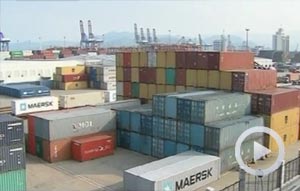Recognition, assistance help restore pride among KMT vets
Updated: 2013-07-06 16:40
(Xinhua)
|
||||||||
BEIJING - Seven decades after Wang Guangya bravely fought against the Japanese invaders, the former Kuomintang (KMT) soldier has lived to have another moment of glory.
On Friday, the centenarian addressed the launch ceremony for a financial support program for 92 KMT veterans in Changsha city, capital of central China's Hunan province, a major battlefield during the War of Resistance Against Japanese Aggression during World War II.
"Servicemen don't fear sacrifice. What we fear is being forgotten," Wang said while wearing several medals made for him by admirers.
The program, undertaken by the Changsha Charitable Society, which is administered by the city's civil affairs authorities and the Shenzhen-based Longyue Charity Foundation, will provide each veteran with a living allowance of 10,000 yuan ($1,631) per year as well as other services for their daily life.
"There are not many veterans alive. They're aged and most are living in poverty. We should find more of them as soon as possible and lend them a hand," Wang said.
The fate of these soldiers has long remained vague.
They served the country in a long and bitter war against a well-armed Japanese army that invaded China from 1937 to 1945.
But because the KMT lost a civil war with the Communist Party of China (CPC) in the years to follow, the blood they shed was not properly acknowledged.
Sun Chunlong, chairman of the Longyue Foundation, said this scheme, in which the government plays a role, will cover more KMT veterans and offer more funding than similar initiatives solely launched by NGOs.
"The government's participation also signals recognition of the KMT soldiers' contributions, and that's what they really care about," Sun said.
The program echoed a statement issued Wednesday by the Ministry of Civil Affairs that suggests local governments attend more to the needs of the KMT veterans.
The statement reiterated that the mainland will guarantee social welfare for the soldiers and encouraged NGOs to provide aid.
"Many living veterans would feel relieved upon hearing the news," said Lai En'dian, who has been collecting oral accounts from the veterans.
The gesture of the mainland was hailed by Taiwan media as "major progress in improving the conditions of the former KMT servicemen".
Official statistics on the number of KMT veterans living in the mainland are lacking. But Sun's foundation dedicated to helping the group said the number is estimated at 20,000, and they mainly live in Hunan, Guangdong, Jiangxi, Yunnan, Guizhou and Sichuan provinces.
"Many veterans remain elusive, so we're facing a great challenge in finding them and verifying their identity," Sun said.
- KMT veterans deserve fair treatment: MOC
- KMT vets who fought Japanese are saluted
- Ministry says KMT veterans will be cared for
- KMT veterans may finally be honored on anniversaries
- Mainland, Taiwan share peaceful aspirations: KMT
- Hu lauds Taiwan ties in meeting with KMT leader
- KMT chief calls for stable cross-Straits ties

 Djokovic, Murray to vie for Wimbledon title
Djokovic, Murray to vie for Wimbledon title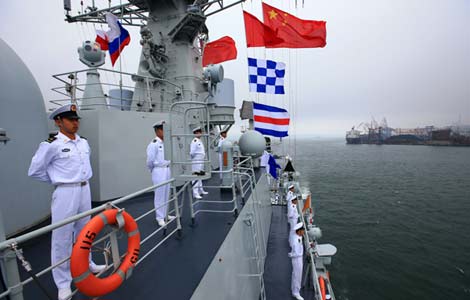
 China-Russia navy drill furthers ties
China-Russia navy drill furthers ties
 Famed monkey takes a new direction in New York
Famed monkey takes a new direction in New York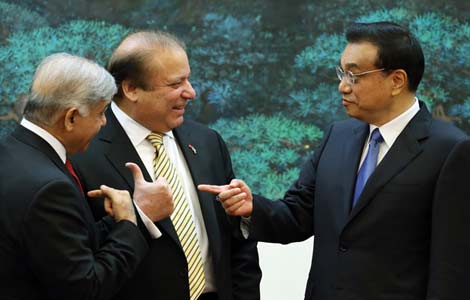
 China, Pakistan ink transport pact
China, Pakistan ink transport pact
 Passenger car sector outlook brightens
Passenger car sector outlook brightens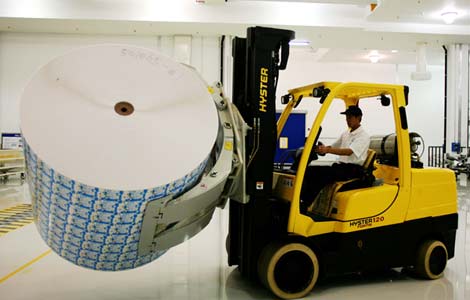
 Multinationals face increased scrutiny
Multinationals face increased scrutiny
 Kobe Bryant reportedly has highest net worth in NBA
Kobe Bryant reportedly has highest net worth in NBA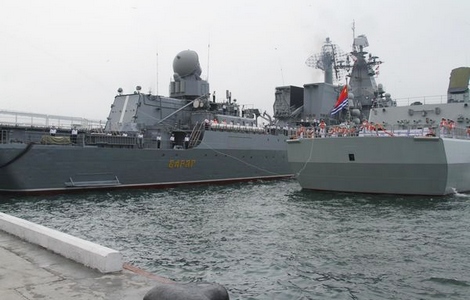
 Chinese fleet arrives in Vladivostok for drills
Chinese fleet arrives in Vladivostok for drills
Most Viewed
Editor's Picks

|

|

|

|

|

|
Today's Top News
China reiterates prudent monetary policy
Companies plan massive investment in Xinjiang
Tetra Pak probed in China
Venezuela offers asylum to Snowden
China, Pakistan ink transport pact
24 dead in Egypt protests
High hopes for China-US talks
Li: 'India is an important neighbor'
US Weekly

|

|

